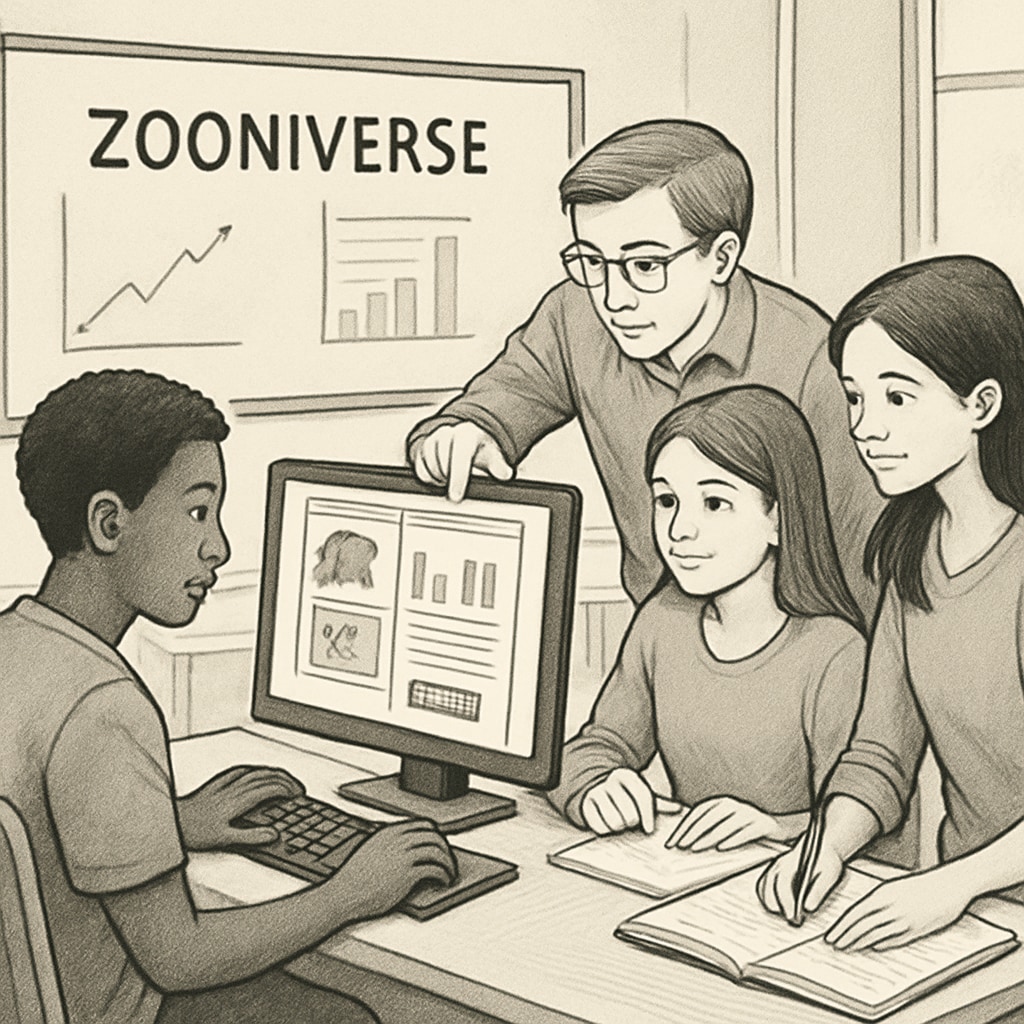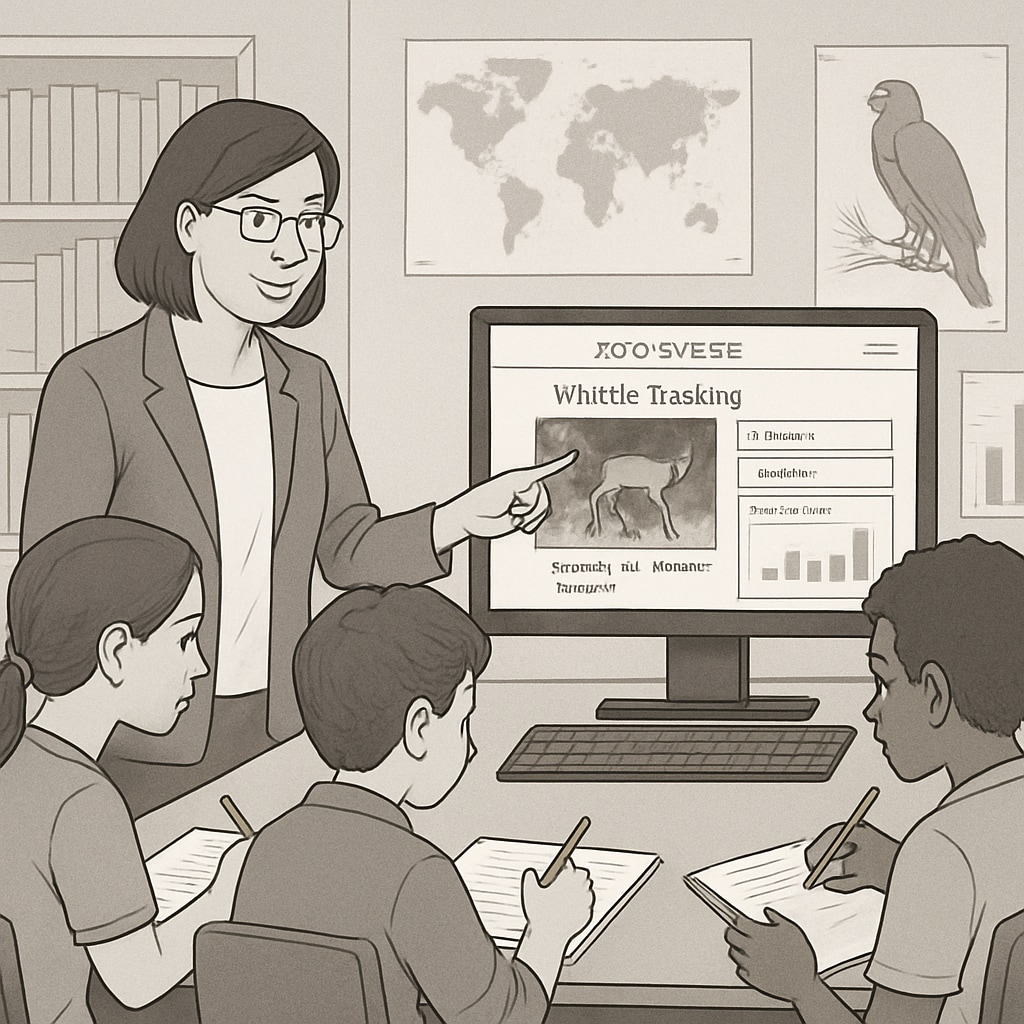Incorporating citizen science, Zooniverse, and science projects into K12 education creates exciting opportunities for young learners to engage in real-world research. Zooniverse, one of the largest citizen science platforms, allows students to contribute to ongoing scientific studies from their classrooms, sparking curiosity and building essential skills. This article explores how integrating Zooniverse into K12 curricula transforms students into “citizen scientists” while nurturing their passion for discovery.
What Is Citizen Science and Why Does It Matter?
Citizen science involves public participation in professional research efforts. Volunteers, regardless of their scientific background, assist in data collection, analysis, and reporting. Platforms like Zooniverse have revolutionized this concept by providing a user-friendly interface where participants can contribute to diverse fields such as astronomy, ecology, history, and medicine.
For K12 students, engaging in citizen science is more than just an educational experience—it’s a window into the scientific process. By contributing to real research, students learn critical thinking, problem-solving, and collaboration. These projects also help them see the relevance of science in addressing global challenges.

How Zooniverse Transforms K12 Classrooms
Zooniverse offers a variety of projects that are perfect for classroom settings. For example, students can help identify galaxies, transcribe historical documents, or track wildlife populations. These activities require no prior expertise, making them accessible to learners of all ages.
Here are key ways Zooniverse enhances K12 education:
- Hands-On Learning: Students actively participate in scientific investigations, bridging the gap between theory and practice.
- Interdisciplinary Approach: Projects often combine science with history, geography, and technology, promoting a well-rounded educational experience.
- Global Collaboration: Students join a community of volunteers worldwide, fostering a sense of shared purpose and cultural awareness.
For teachers, Zooniverse is an invaluable tool. Its projects align with curriculum standards and can be tailored to suit different grade levels and learning objectives.
Getting Started with Zooniverse in Your Classroom
Integrating Zooniverse into your teaching plan is simple and rewarding. Follow these steps to get started:
- Explore Projects: Visit the Zooniverse website to browse available projects. Select ones that align with your students’ interests and curriculum.
- Create a Classroom Account: Set up a shared account or individual logins for your students to track their contributions.
- Introduce the Platform: Before diving in, explain the project’s goals and why their work matters. This helps students connect with the research on a personal level.
- Encourage Collaboration: Assign tasks in groups to foster teamwork and discussion.
- Reflect on Outcomes: After completing a project, discuss findings and their implications. Encourage students to share their experiences with peers or even the broader Zooniverse community.

Inspiring Lifelong Scientific Curiosity
By participating in Zooniverse projects, students gain more than just knowledge—they develop a mindset of inquiry and exploration. This platform inspires them to see science not as a set of rigid rules but as a dynamic process they can contribute to. As a result, many students continue pursuing STEM (science, technology, engineering, and mathematics) fields, feeling empowered by their early experiences as citizen scientists.
In addition, Zooniverse promotes values like perseverance, attention to detail, and a commitment to making a difference. These qualities are essential not only for scientists but for responsible global citizens.
In conclusion, incorporating citizen science, Zooniverse, and science projects into K12 education is a transformative way to engage young learners. By offering hands-on experiences, fostering interdisciplinary connections, and inspiring curiosity, Zooniverse empowers students to become active participants in the scientific community. Start exploring the platform today and watch your students thrive as citizen scientists!
Readability guidance: This article uses short paragraphs, lists, and clear transitions to maintain readability. Passive voice and long sentences are minimized, ensuring clarity and engagement for educators and learners alike.


